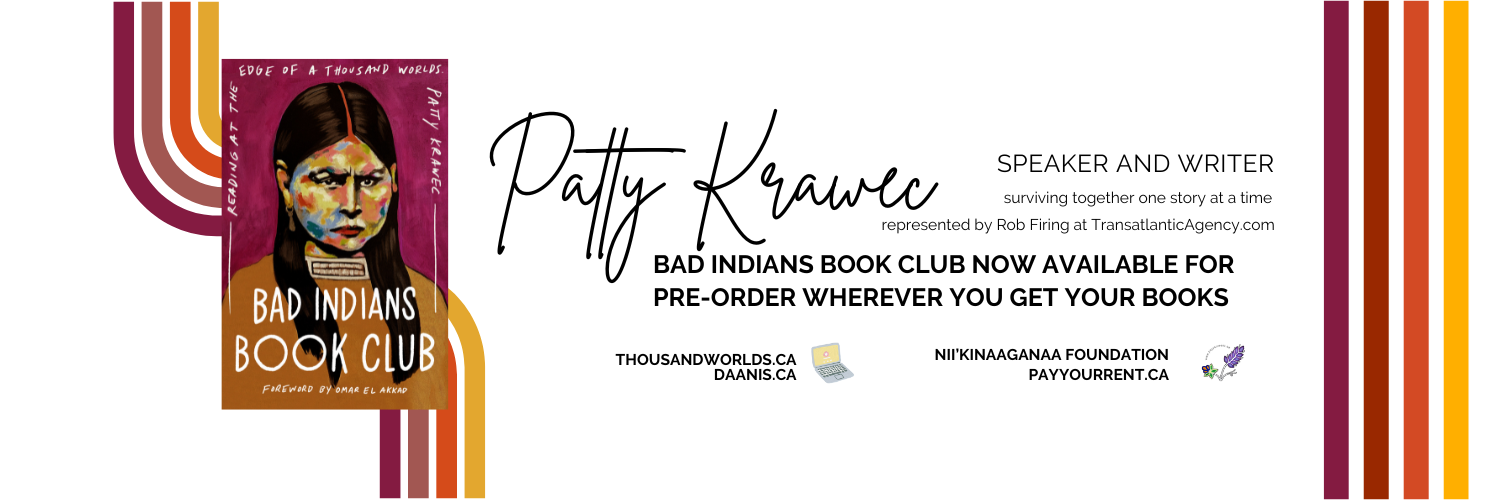Refuse to look away
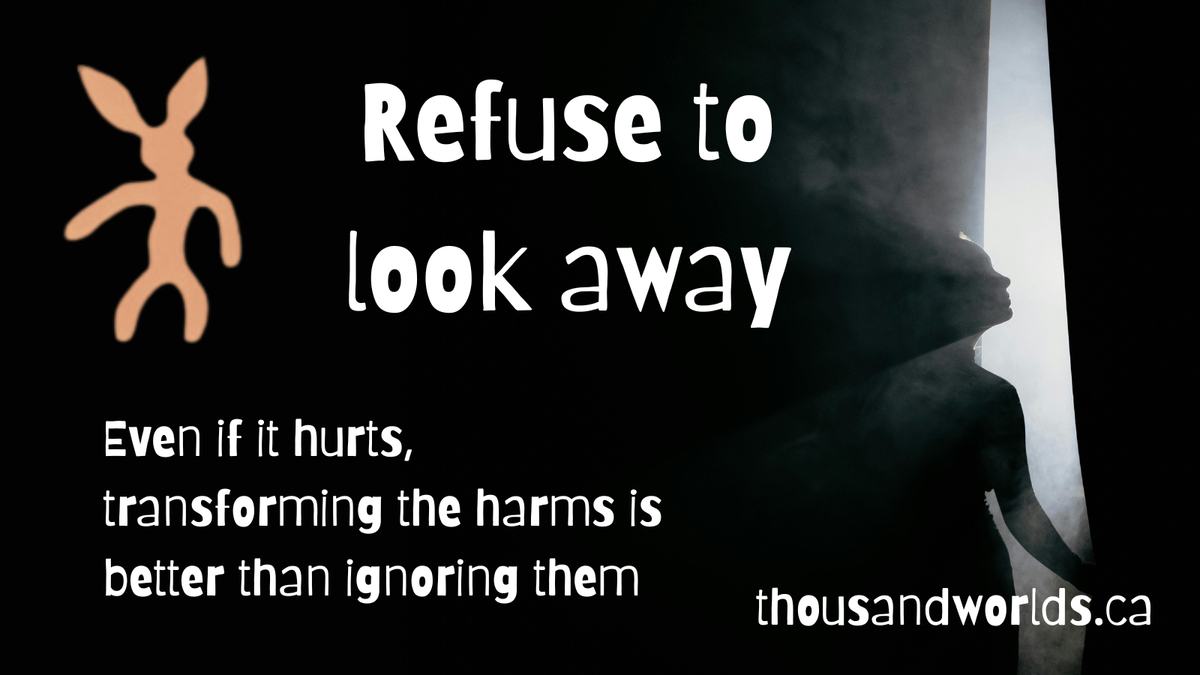
This week Nanaboozho decides to resume his quest to find those who killed wiin's parents, having first made Nokomis younger so that she can withstand wiin's absence. These stories, Nanaboozho and the Great Sturgeon and then this week's follow up story, brings us back to a version we read earlier but which I didn't know was connected to these stories because the title emphasized a different aspect of the story. But that's kind of cool because that means I get to revisit the story with different details and additional perspective gained from having gone through all of these stories, kind of how Nanaboozho walked around the world doing things and then did it again with a wolf because that allowed wiin to see things differently. Plus this version mentions a twin brother named Naanaapataam and I had no idea who that brother was. But I do now and soon you will too.
In both versions, this series of events begins when Nanaboozho asked Nokomis this question: Am I alone? In the previous version she is more specific than this one, where she just says that "people" were responsible and then gives wiin information on where to find those people. In the other version she responds to his violence with "what have you done?" just as Jibayaboos does when Nanaboozho slays him, and Nanaboozho has to deal with the unintended consequences of his actions. Wiin doesn't look away from it, doesn't make excuses. Wiin deals with it and transforms it in some way.
In addition to trying to find out who Naanaapataam is, this week's story, Nanaboozho Slays Hewer of His Shin, sent me down a rabbit hole about tibias and fibulas because these are the bones that make up your shins. The fibula doesn't bear a lot of weight, but it does, along with the various tendons attached to it, help your ankle to maintain stability. Hoof clan (caribou, deer, moose, buffalo, etc) don't really have fibulas; if it isn't completely fused then it's just a fragment that doesn't do much. Other mammals (like wolves, bears, martens, etc) have both tibias and fibulas allowing them to move in particlar ways because of the stability that a hewed shin would provide them and do you see what I just did there.
A hewed shin. It looks like it's been split.
Before we go further, hello to new members! and Miigwech to my new friend with benefits, Colin. Paid subscribers help keep the lights on, but everyone can expand my audience by sharing this post through email or on social media.
This week we're considering William Jones' story Nanabushu Slays Hewer of His Shin. Maya Chacaby, who directed me to the Jones archive when I had Questions about Things, has a wonderful dissertation about the quantum nature of Ojibwe life and how our stories get us there. So I'll be referencing her work as well while we're talking about the Hewer of Shins because it's one of the few places I found anybody talking about this story. As always, these are just personal reflections, they are not meant to be seen as an authoritative statement on what these stories mean, as if there was a singular meaning. Which there isn't. I reflect on these stories to put them into conversation with your own, not to try and convert you to the religion of the Anishinaabe.
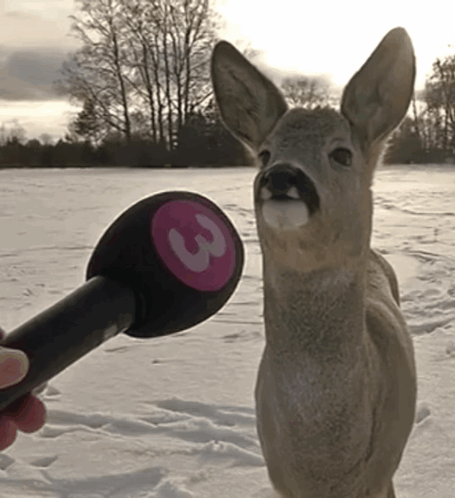
I thought that Hewer of Shins sounded familiar, and in my googling I found Maya Chacaby's dissertation, which included information on Naanaapatam and the earlier story in which Nokomis tells Nanaboozho how to find wiin's older brother. After passing a variety of animals to whom wiin gives gifts, Nanaboozho comes to the island where the brother lives and guess what. Wiin hears the sound of something being hit and when Nanaboozho looked in the dwelling, this being was hewing away at his own shins. Hewer of Shins is Nanaboozho's older brother, also known as Jaagika’ogakwan who Chacaby tells us is a deer spirit being. We know that the older brother is a hoof clan spirit because his shin is not split, he has to hew them himself. As an interesting aside, in the earlier version when this brother gets up to greet Nanaboozho, he walks unsteadily.
Older Brother greets Nanaboozho: Have you come to make war on me? Nanaboozho simply says "yes" and it is on. The fighting goes on for a little while, it is all Nanaboozho can do to dodge the blows and wiin is running out of arrows when wiin hears somebody saying "Hey! Nanaboozho, shoot him at the scalp-lock," which is where hair is tied. The brother asks Nanaboozho who wiin is speaking to and Nanaboozho attributes the voice to little brothers of the sky, but that isn't who it was. Nanaboozho has no idea who it was. Nanaboozho then strikes another blow where the voice instructed and before wiin can deliver the killing blow Older Brother says, if you let me live I will tell you what you want to know.
Nanaboozho says ok then, out with it, tell me what you did to my father and mother and everybody else who lived in the past. The brother directs wiin's attention to the trees. Do you see this island? All these trees are those who used to live here. I turned them into trees. Now leave me alone and I will give you something to restore them. Nanaboozho doesn't commit to this and just asks for the instructions which Hewer of His Shin provides, at which point Nanaboozho ends his life saying "dog that you are, who was ever bent on destroying the earth. So now I will derive from you the source by which the earth will be replenished." Nanaboozho proceeds to cut the brother into small pieces and casting them about in various directions these pieces become birds as well as small and large animals. Remember last week when Nanaboozho cut up the sturgeons and it became all manner of smaller fish?
Nanaboozho follows the instructions Transformed Brother provided and in short order instead of a tree standing before wiin, there is a man. So wiin kept doing it, transforming the trees and that, Jones says, is how Nanaboozho found wiin's father and mother and elder brother Naanaapatam.
Did you hear me, laughs Naanapatam? Did you hear me? When the old man almost had you. That was me.
Now, when Nanaboozho transformed all these trees back into beings they didn't just start walking the earth again like people who had been resurrected. Wiin set them free and their spirits were able to go to the place that wiin had created and over which he had set Jibaayaboos as an authority and caretaker. Wenona became the earth, and Naanapaatam became the sun, the watcher. The sun is our older brother who watches us, watches over us.
I'm reading William W. Warren's History of the Ojibway People (1885) and this chopping up of enemies that Jones describes is in fact something that Ojibway warriors did. No undead zombie enemies rising from our graveyards. And it is troubling to read stories about intertribal warfare. I would much rather believe that my ancestors were happy forest dwellers living in peace and harmony all the time, but as we are clearly seeing in this moment we ignore the ugly parts of our history to our peril. There are criticisms of Warren's history from native and non-native sources, but he was writing in the mid-1800's as a mixed blood Ojibwe man and recording the stories that were important to the people he was talking with.
Throughout Warren's book there are descriptions of war and conflict just as there are in books about European and colonial history. The difference, for me anyway, is that we lived with our violence. We lived with the reality and the consequences to ourselves and others, which means we treated it seriously and did not romanticize war the way that it is romantized in the west. We did not meet the cries of "what have you done?" with excuses and stories or theologies of innocence.
The citizens of western societies outsource their violence to policing and the military, keep it at the edges so that the only aspects of it they see are sanitized. In the 1960s and 70s people watched the war in Vietnam unfold on their television sets and were horrified by what they were seeing which stoked the fires of the antiwar movement. Unfortunately, people seem to have become inured to it because we're watching genocide live-streamed on our phones and too many are turning themselves into pretzels to make excuses for Israel who is, apparently, the only country in the Middle East permitted to defend itself.
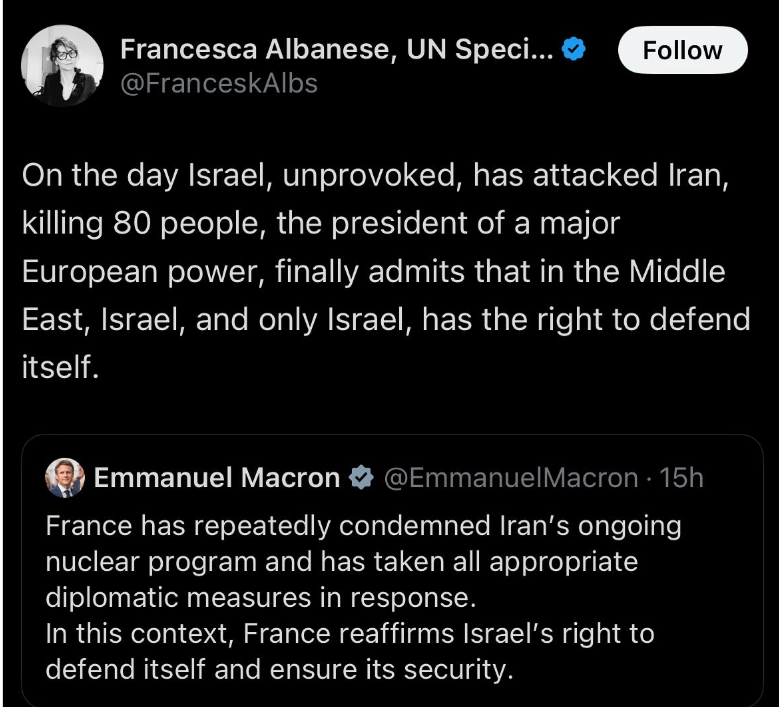
On a social level, there are actions and policies that have consequences rippling far beyond our control while we participate in or just live through the creation of new worlds. And although most of us aren't actively killing people ourselves the way that Nanaboozho does in these stories, we do live in a society in which we give tacit permission for others to kill on our behalf overtly through the military and policing or through social policies that restrict funding for housing, medical care, and food. Whether you like these policies or not, your tax dollars support them. Drowning out the dismayed cries of "what have you done," our society valourizes the killers, thanks them for protecting our safety while ignoring those who are made profoundly unsafe.
And if we do see the lives being extinguished, we have been provided with stories that suggest they may have deserved it or that it was actually somebody else's fault. After all, it wasn't that long ago that people were trading photographs of lynchings like they were baseball cards, so it shouldn't surprise me how easy it is for people to ignore or justify the violence being leveled against Palestinians, Kashmiri, Congolese, Central Americans, and so many more. One of the most absurd things I have seen is people blaming Hamas for the now more than 50,000 dead Palestinians because they retaliated against Israeli occupation. The "look what you made me do" defense.
Perhaps, like Nanaboozho, we can transform our participation instead of being overwhelmed by it. Unfortunately that means refusing to look away, and we want so badly to look away. To not talk about it, not read about it. A conscious refusal to not know, accepting that collective agreement to forget, to sanitize, to make excuses. Refusing to look away from the ways that we are complict (actively involved) and implicated (passively benefiting from) is overwhelming. I get that. There's a reason why looking away is so popular and it's ok to take breaks! We need to do things to remind ourselves that the world is worth saving. But when wiin was confronted with cries of "what have you done?" Nanaboozho did not look away, neither should we.
So what does transformation look like?
It could look like changing your mind. That's usually where transformation begins. We understood something one way, and now we see it differently. I've talked about growing up in the evangelical church, and part of that was the firm conviction that Israel was God's land for God's people. The story I was told about the invasion and occupation is, of course, much different from what actually happened. There, as here, the land was not empty and if you want to understand the colonization that I write about in Becoming Kin you don't need to look any further than Israel and I'm not the only one making that connection. The original Zionists made that connection themselves. I mean, you can look farther. There is a lot of it going around right here at home as well as abroad. In fact, I would like you to look farther and see how all of this violence is connected and interdependent.
So how did that change happen?
I often see people asking "what radicalized you?" and it's a useful question, thinking about what caused us to change direction is a good way to figure out how to help others make that change as well. For me, more often than not, it's relationships, and the books that those relationships lead me to because it's not fair to expect my friends to give me a master class in their lives. I wrote Bad Indians Book Club in part because reading intentionally can be a 101, getting you familiar with the landscapes your friends live in so that when you do ask questions or have conversations you come prepared. When they confront the narratives you grew up with, it's less of a shock if you've done some reading.
I became friends with people who were not like me because I went looking for them, and I went looking for them because one day I realized that my entire social circle was contained in my church and that was profoundly unhealthy. So I started volunteering somewhere that had nothing to do with the church and what a change in life trajectory that was.
Getting to know people, I noticed the similarities in our experiences. Listening to my Black, Latine, Muslim, Jewish, and Palestinian friends I realized how connected our histories are and I realized my own implication in the harms they experience. Looking away would definitely have been easier, making excuses, accepting the stories I was told about them that justified the harms they experience. So much easier. But these had become my friends, they weren't books I could put down. They were people, not trees and they deserved to be made free. This made it much harder to look away from the lives they lived right in front of me. Instead I learned to talk with them about how they experience our society and the work I was doing (social work). Asking the questions meant listening to the answers and, this is the key part, not getting defensive. Becoming defensive is a strategy of looking away. I had to listen.
I refused to look away. And that refusal transformed these relationships and it transformed me which in turn transformed the things that I do and actions I participate in to change the things that must be changed. It set me free, and it helps me to set others free as well, transforming them from the trees in which they've become ensared.
I know these are upsetting, disorienting, and discouraging times. I want to say that what we have is each other, but honestly, that’s a decision we have to make. We have to decide whether to support each other, whether to reach for each other, and whether or not we will reject the stigmas and scapegoating that would divide us. We can rage against the culture of forgetting that this administration is expanding. We can refuse to forget our stolen neighbors, and reject our own potential erasure. If we make the right choice, we will still face a great deal of tumult and loss, but we will also find comfort in solidarity and reciprocal care. For now, I want to send my love to everyone who is organizing community defense, protesting, and doing the work of collective survival. Your efforts are the stuff that hope’s made of, so please, keep reaching out, keep building, and never give up on each other.
Kelly Hayes, The Authoritarian Machine Is Growing (emphasis mine)
In this recent episode of Movement Memos Kelly refers to the culture of forgetting that we have in the west and honestly I wish I'd thought of that phrase myself because it fits pretty neatly with the subtitle for Becoming Kin: Unforgetting the Past and Reimagining Our Future. Every time I do a talk somebody asks me about "unforgetting" and now I'll be able to say that I wrote it against the culture of forgetting we are immersed in which is a much more concise phrasing than the word salad I normally use. Our culture of forgetting, of distancing ourselves from the harms done or ongoing through theology or political ideology is a strategy of looking away. More disturbing, our culture of forgetting, of looking away, allows for the fascist right to rewrite our national stories in a way that creates a particular racially segmented future.
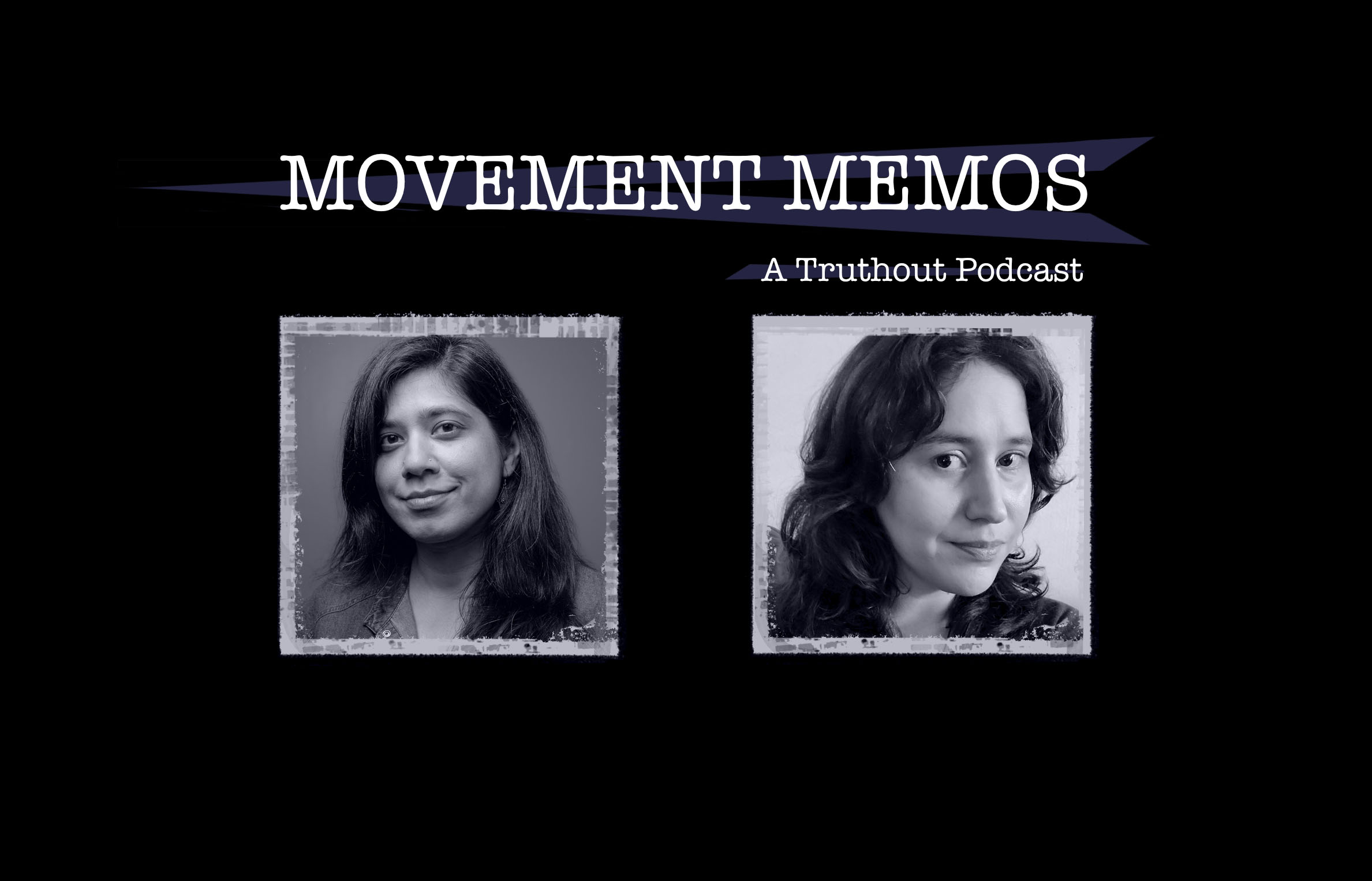
Refusing to look away from my own actions also provides the strategies for transformation. If I caused harm by teaching and speaking about things I now recognize as destructive and toxic, then I can transform my teaching and speaking to other more liberatory ends. On social media I'll often step into discussions with Christians because I know the language and the theology and Jewish or Palestinian people shouldn't have to carry that burden alone. If I caused harm by the ways I had shown up in the past, then I can show up differently now, not to lead but to follow those who know better than I do because they've been at it longer or because it's their lives that are at stake.
Looking at my own history on my maternal side I see refugees, I see a grandfather who entered this country using false papers and a wife who was complicit. He came here illegally, and like most people who come to this country all he wanted was a better, safer life and the Red Army that left him for dead, after rounding him up along with a number of others who deserted from a war they didn't want, didn't leave his papers with him. He needed papers so he got papers. When he got to Canada he worked, bought a house, paid taxes, just like most people who come to these countries. Just like all those people being rounded up and deported in the US. Just like migrant workers whose labour is exploited before they are deported. So I write and speak and call members of Parliament to gain support for permanent status for all migrants. Because that's what my family experienced, that's their story. I can't pretend that my grandfather came here according to rules invented to control refugee entry, or do you believe that everyone who passed through Ellis Island had the kind of documentation required today. He had false papers. Not going to sanitize it, not going to make excuses for it. Going to transform it by arguing for broad amnesties and permanent status, by arguing against changes to legislation that creates new ways of criminalizing people.
I'm going to close with a quote from Aurora Levins Morales, a Jewish Puero Rican writer and activist. In here she writes against that culture of forgetting because refusing to look away is what ultimately frees us to act.
“What we need is a collective practice in which investigating and shedding privilege is seen as reclaiming connection, mending relationships broken by the system, and is framed as gain, not loss… Deciding that we are in fact accountable frees us to act. Acknowledging our ancestors’ participation in the oppression of others (and this is ultimately true of everyone), and deciding to balance the accounts on their behalf and our own, leads to less shame and more integrity, less self-righteousness and more righteousness, more humility, compassion and a sense of proportion.”
― Aurora Levins Morales, Medicine Stories: Essays for Radicals
I have not yet read Street Rebellion: Resistance Beyond Violence and Non Violence, but I did listen to Benjamin S Case's interview on Conspirituality which is putting this book next on my tbr pile. He takes on the leftist/progressive mantra of non violence as an article of faith and demonstrates that what we think is proven, that non violence is the only effective strategy for change, is not proven at all. I wrote about non violence being a privilege in my series on Fanon's Wretched of the Earth, which you should also read.
The trouble with refusing to look away is that the things we see are upsetting, we want to take action but we don't always know how. When I got mad about the culture of forgetting and erasure of violence done to Indigenous peoples, I decided to write against it. But there are so many things we can do, actions we can take alongside others. Everyday Activism website has some good ideas for things you can do to get started. And One Million Experiments looks at all the various things that are being done across the US. We don't need a single solution. We need, as Mariame Kaba says, a million experiments.
If you have not yet read Harsha Walia's Border & Rule: Global Migration, Capitalism, and the Rise of Racist Nationalism it is a very timely book, written in 2021 in case you thought that our current mess is recent. Trump is certainly making things worse, but his rude and aggressive anti-immigration stance isn't all that different from previous Democrat administrations, all of whom deported, built walls, and demonized migrants from the Global South while protecting migrants from Europe but did it in well tailored suits and with more calming rhetoric.
If you live in Canada, you can take action against Bill C2, which is unjust immigration legislation laying the foundation for the kind of surveillance and mass deportation that we are seeing in the US. If you are in the US, you can flood the ICE tip line with false information, which is one strategy to throw sand in the gears of violent oppression 1-866-DHS2-ICE (1-866-347-2423) . Way better than drunk dialing your ex.
I didn’t want the Bad Indians Book Club to end. I read it at the perfect time, when snow was on the ground, in a period of rest and renewal. Patty Krawec made me wonder and made me ponder. Her book is a call to action to be curious, vigilant, to listen to and receive the inner strength of the land, to create and recreate community, to agitate, to investigate, to take story into ourselves and to hold the teachings sacred. As she guides us, throughout the book she tells us a new, sustaining, serial story about Kwe, Deer Woman. Such a gift. There is so much goodness in The Bad Indians Book Club!
Shelagh Rogers, Longtime TRC Honorary Witness, broadcast journalist.
If you are as excited about Bad Indians Book Club being released as I am and would like to be part of the release crew let me know. You'll get a free copy of the book ahead of everybody else!
And don't forget to join up with the Nii'kinaaganaa Foundation. Every month we collect funds from people living on Indigenous land and redistribute them to Indigenous people and organzers. You can find out more information on the website which is now powered by ghost, which means that you can become a subscriber there just like you are here! This month in addition to the organizers we support we are trying to keep 6 people from being evicted by covering their rental arrears. Please help if you can.


